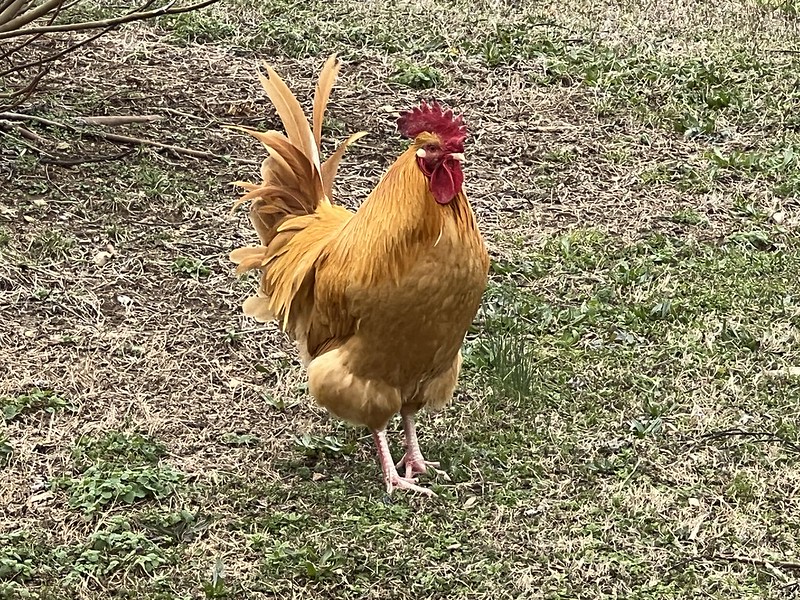‘Keep the air moving, keep the water cool’ to help poultry flocks survive summer heat
Aug. 25, 2023
By Ryan McGeeney
U of A System Division of Agriculture
Fast Facts:
- Proper ventilation, adequate water are essential
- Live poultry should never be brought into the home
- Division of Ag fact sheets available for free download
(387 words)
(Newsrooms: Download file art of backyard poultry)
LITTLE ROCK — With the extreme heat felt across much of the United States this summer, agricultural producers need to take measures not just to protect themselves and their laborers, but also their crops and livestock as well.
Zac Williams, extension poultry husbandry and management specialist for the University of Arkansas System Division of Agriculture, said that for both commercial producers and backyard hobbyists, keeping chickens alive through the summer heat comes down to a few basics.
“Keep the air moving and keep the water cool,” Williams said. “For commercial producers, that means making sure your ventilation system, including exhaust fans and evaporative cooling pads, are working properly. For backyard chicken keepers, that means making sure there’s shade available.
“In either instance, chickens need cool water, and plenty of it,” he said. “It’s not enough to just put out adequate amounts of water in the morning. It’s going to get warm, and that’s just not as effective. In commercial houses, managers need to flush those water lines multiple times a day for the same reason.”
Williams said that if backyard chicken keepers want to put out fans for their flocks, that’s fine. They should not, however, bring live poultry into their homes to avail them of the air conditioning.
“You can bring all kinds of diseases into your house doing that,” Williams said. “I’d never recommend anyone bring chickens into their house.”
Ounce of prevention
Williams warned that if chickens do begin suffering from heat stress, producers will
begin seeing production losses. It can be very difficult to bring poultry back from
a heat-related illness, so it’s best to be proactive.
“An ounce of prevention is worth a pound of cure,” he said. “Chickens are actually kind of hardy. But if it gets up to 100, all you can do is give them the tools they need to survive.”
He also noted that some producers may add electrolytes to their flocks’ water supply, which can help the animals endure the heat of summer.
Commercial chicken houses in Arkansas produced more than 7.3 billion pounds of chicken meat in 2022, and produced $693 million in eggs.
The Division of Agriculture has several free publications available that producers may find useful, including research-proven techniques for Getting Broiler Houses Ready for the Summer and sprinkler systems that help keep flocks cool.
To learn about extension programs in Arkansas, contact your local Cooperative Extension Service agent or visit www.uaex.uada.edu. Follow us on Twitter and Instagram at @AR_Extension. To learn more about Division of Agriculture research, visit the Arkansas Agricultural Experiment Station website: https://aaes.uada.edu/. Follow on Twitter at @ArkAgResearch. To learn more about the Division of Agriculture, visit https://uada.edu/. Follow us on Twitter at @AgInArk.
About the Division of Agriculture
The University of Arkansas System Division of Agriculture’s mission is to strengthen agriculture, communities, and families by connecting trusted research to the adoption of best practices. Through the Agricultural Experiment Station and the Cooperative Extension Service, the Division of Agriculture conducts research and extension work within the nation’s historic land grant education system.
The Division of Agriculture is one of 20 entities within the University of Arkansas System. It has offices in all 75 counties in Arkansas and faculty on five system campuses.
Pursuant to 7 CFR § 15.3, the University of Arkansas System Division of Agriculture offers all its Extension and Research programs and services (including employment) without regard to race, color, sex, national origin, religion, age, disability, marital or veteran status, genetic information, sexual preference, pregnancy or any other legally protected status, and is an equal opportunity institution.
# # #
Media Contact:
Ryan McGeeney
rmcgeeney@uada.edu
@Ryan_McG44
501-671-2120
